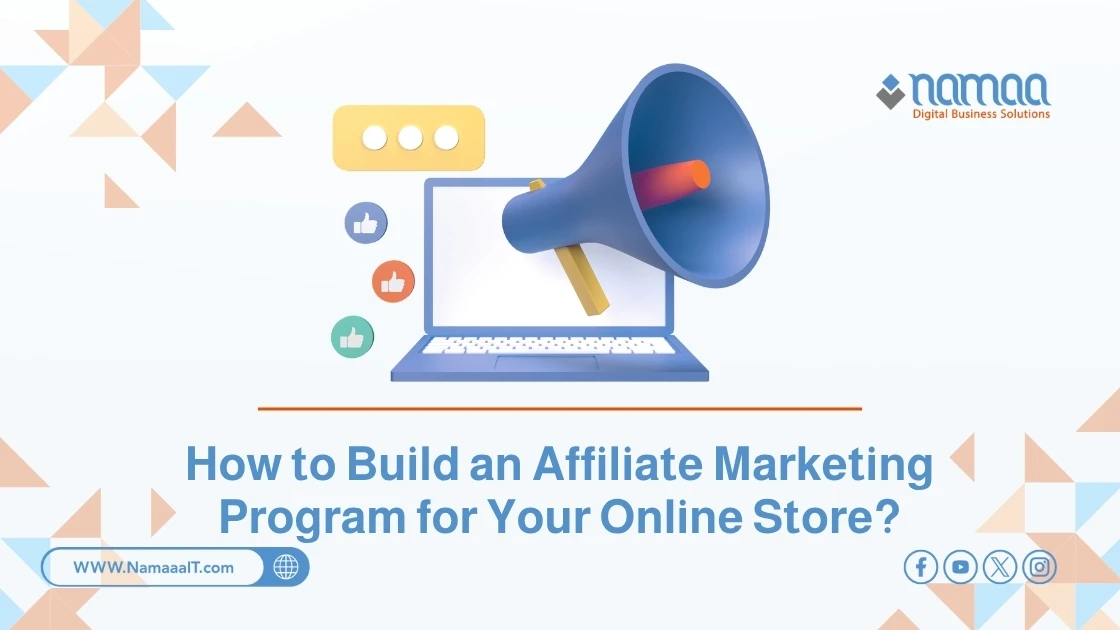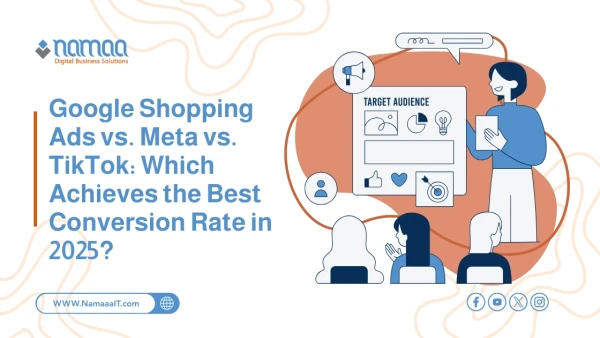In the fiercely competitive world of e-commerce, simply listing your products on a website and waiting for sales is no longer enough. Attracting customers requires effective marketing strategies—one of the most important being affiliate marketing. This model allows you to expand your reach to a broader audience through a network of affiliates who promote your products in exchange for a commission on each sale they generate. However, building a successful affiliate marketing program is not a random process—it requires clear planning, well-thought-out foundations, and a fair incentive system. In this article, we’ll explore the steps to creating an effective affiliate program for your online store—from setup to managing relationships with affiliates to ensure tangible results.
What is Affiliate Marketing?
Affiliate marketing is a marketing model based on a partnership between a product or service owner (the advertiser) and an independent marketer (the publisher or partner), where the marketer earns a commission for every sale or action (such as a signup or download) generated through their promotional efforts. This model is considered one of the most effective forms of marketing because it is performance-based—you only pay when a measurable result is achieved.
There are several key players in the affiliate marketing ecosystem: the merchant or advertiser (product owner), the publisher or marketer (promoter of the product), the end customer (buyer), and sometimes an intermediary network that facilitates the relationship and provides tracking and reporting tools.
This model is widely used in industries like e-commerce, digital services, apps, online education, and travel. Marketers use a variety of channels to promote products, including blogs, YouTube channels, social media, email marketing, and paid ads. Every transaction is tracked via a unique affiliate link that identifies the source of the visit or sale, ensuring transparency. What sets affiliate marketing apart is its low risk and direct tie to ROI—in other words, it's a smart way to scale without a massive marketing budget, making it ideal for online store owners looking to grow without upfront marketing costs.
Why Should You Use Affiliate Marketing for Your Online Store?
Affiliate marketing offers high marketing potential with a flexible budget, making it ideal for store owners who want to expand their reach without the financial risks. In this model, you only pay affiliates when they deliver results—whether that’s a sale or another desired action. This gives you full control over your costs and ensures that every dollar spent brings real value. That alone makes affiliate marketing one of the most fair and effective marketing models.
Moreover, leveraging a network of different affiliates helps you reach new and diverse audiences that you might not be able to target on your own. Each affiliate has their own style and loyal audience, which adds a personal touch to product promotion. This kind of marketing also builds credibility, as customers tend to trust recommendations from people they follow more than traditional advertisements.
Another key advantage is the ease of performance measurement. Using tracking and analytics tools, you can identify who is actually driving sales and which channels are most effective—allowing you to optimize the program continuously based on accurate data. It also enables you to benefit from content marketing, influencer marketing, and reviews in a subtle but powerful way. In short, affiliate marketing gives your online store a continuous growth push based on real performance—not just theoretical promises.
Is Affiliate Marketing Right for Your Business?
Before investing time and effort into building an affiliate program, it's important to ask: does this model suit my business type? The answer depends on several factors, including your product type, target audience, profit margins, and purchasing behavior. In general, affiliate marketing works best for products with clear value propositions and healthy margins that allow for attractive commissions.
If you offer digital products or services that can be delivered online, your chances of affiliate success are higher due to lower operating costs and high scalability. On the other hand, some industries may not be well-suited for this model. For instance, if your product targets a very narrow niche or requires complex technical education before purchase, affiliates may struggle to promote it without significant support. Likewise, if your profit margins are too slim, you might not be able to offer commissions that appeal to skilled marketers.
Consider the following: Is your product easy to explain? Does your target audience shop and search online? Can you allocate a fair percentage of profits to affiliates? If the answer is yes, affiliate marketing could be a smart and powerful way to drive your online store’s growth.
How to Build an Affiliate Marketing Program for Your Online Store
To build an effective affiliate program, you should follow a structured plan that starts with careful planning and ends with ongoing management and optimization:
- Define your goals: Are you aiming to increase sales, boost brand awareness, or enter new markets?
- Choose the right platform: This could be a standalone affiliate management system like Tapfiliate or Post Affiliate Pro, or a plug-in for platforms like Shopify that support affiliate tools.
- Set clear program terms: Specify commission rates, qualifying actions (sales, sign-ups, downloads, etc.), payment policies, and frequency (one-time or recurring). The clearer your terms, the more likely you are to attract serious affiliates.
- Create a landing page: Explain the program, benefits, and terms with a simple registration form.
- Recruit the right affiliates: Use social media, niche forums, or collaborate with influencers in your field. Reach out directly—don’t wait for them to find you.
- Provide promotional materials: Offer ready-made assets such as tracking links, banners, copy, and discount codes.
- Manage the program actively: Track performance regularly, monitor traffic and sales quality, and maintain communication. Offer bonuses to top performers and seek feedback to improve.
Success isn’t just about tools—it also depends on human interaction, transparency, and ongoing motivation.
How to Promote Your Affiliate Program
Once your affiliate program is structurally complete, the next big challenge is attracting the right marketers to join. No matter how well-designed your program is, it won’t yield results if it’s not visible to potential affiliates. Start with a smart, organized promotion strategy.
- Create a professional landing page that explains the benefits of joining, your product value, commission rates, and available support. The page should be persuasive, clear, and include a strong call to action.
- Use channels where marketers are active—forums, Facebook and LinkedIn groups, communities like Reddit. Don’t just advertise—share useful content that highlights mutual value.
- Leverage email marketing to reach out to content creators and website owners in your niche, offering a custom deal or welcome bonus.
- Partner with influencers who speak to your target audience and offer them free trials or samples in exchange for reviews and program promotion.
- Engage your current customers: Some might be interested in promoting a product they already love in exchange for a commission.
- Optimize your program’s search visibility through SEO so that marketers looking for profitable affiliate programs can find you easily.
Effective promotion begins with knowing where your ideal affiliates hang out—and speaking their language of opportunity.
Read also: The importance of online store speed
Frequently Asked Questions
- Should I sign a legal contract with affiliates?
Yes. A contract outlining rights and responsibilities protects both parties. It should cover payment terms, usage policies, and acceptable promotional practices. - What are the best payment methods for affiliates?
Digital payment methods like PayPal, bank transfer, or cryptocurrency. Choose a flexible, easy-to-use option suitable for international affiliates. - How long does it take to build an effective affiliate program?
Typically 2 to 4 weeks, depending on your store’s readiness, available promotional content, and chosen platform. Proper foundation is more important than speed. - Can the program be fully automated?
Partially, yes. You can automate signups, tracking, and payments—but quality control, partner support, and performance motivation require human involvement. - How do I evaluate the program’s success?
Look at metrics like the number of active affiliates, conversion rates, and ROI. If you see consistent sales growth at a low acquisition cost, your program is working.
Summary
✅ Affiliate marketing is a performance-based model where you only pay for results, accounting for 16% of global digital sales.
✅ 80% of major brands rely on affiliate programs as a key part of their marketing strategy.
✅ It’s ideal for online stores as it offers high ROI at lower costs compared to traditional paid advertising.
✅ Effective commission rates range from 5% to 30%, with higher engagement when promoted through trusted influencers or creators.
✅ A successful program involves clear goal-setting, platform selection, affiliate recruitment, ready-to-use promo materials, and regular performance monitoring.




.webp)
.webp)


